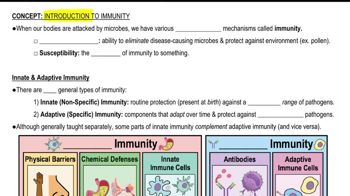Multiple Choice
A vaccination works to establish __________.
2060
views
 Verified step by step guidance
Verified step by step guidance Verified video answer for a similar problem:
Verified video answer for a similar problem:



 4:43m
4:43mMaster Classes of Antibodies with a bite sized video explanation from Bruce Bryan
Start learning